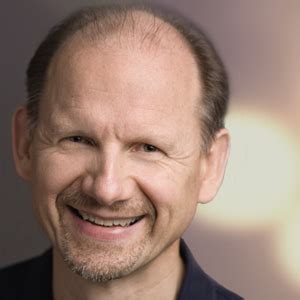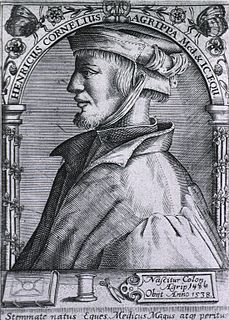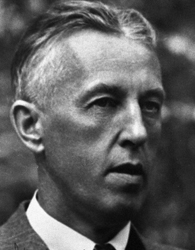A Quote by David Hume
The chief benefit, which results from philosophy, arises in an indirect manner, and proceeds more from its secret, insensible influence, than from its immediate application.
Quote Topics
Related Quotes
One of the chief inhibitions to human progress arises because of the extreme slowness with which the advances in knowledge become translated into action for the benefit of society as a whole. There is no step more important for the removal of that inhibition than that of providing for intimate contact between the leaders in the fields of pure and applied science.
Natural Magick is taken to be nothing else, but the chief power of all the natural Sciences; which therefore they call the top and perfection of Natural Philosophy, and which is indeed the active part of the same; which by the assistance of natural forces and faculties, through their mutual & opportune application, performs those things that are above Human Reason.
If we consider the manner in which those who assume the office of directing the conduct of others execute their undertaking, it will not be very wonderful that their labours, however zealous or affectionate, are frequently useless. For what is the advice that is commonly given? A few general maxims, enforced with vehemence, and inculcated with importunity, but failing for want of particular reference and immediate application.
Do not turn the power of your mind upon others, but turn it upon yourself in such a way that it will make you stronger, more positive, more capable, and more efficient, and as you develop in this manner, success must come of itself. There is only one way by which you can influence others legitimately, and that is through the giving of instruction, but in that case, there is no desire to influence. You desire simply to impart knowledge and information, and you exercise a most desirable influence without desiring to do so.
Life is more than thought: what a man feels, and what his senses awaken in him, are more indispensable to his life's fullness than subsequent reflection on their significance. Both Stirner and Nietzsche have elaborated Faust's opening speech in which he bemoans his wasted years in academia: this speech is Goethe's own impeachment of Kant and Hegel . Philosophy proceeds always under the risk of making a fetish of thinking.
...those experiments be not only esteemed which have an immediate and present use, but those principally which are of most universal consequence for invention of other experiments, and those which give more light to the invention of causes; for the invention of the mariner's needle, which giveth the direction, is of no less benefit for navigation than the invention of the sails, which give the motion.
One of the things I want to do in the book is to explore how philosophy can be done in literature. I start doing that in the first chapter, by introducing the idea of "philosophy by showing". What literature/philosophy shows is how to look at some important facets of life in a new way, thus changing the frame in which subsequent philosophical argument proceeds.
The reason is that nature has so created men that they are able to desire everything but are not able to attain everything: so that the desire being always greater than the acquisition, there results discontent with the possession and little satisfaction to themselves from it. From this arises the changes in their fortunes; for as men desire, some to have more, some in fear of losing their acquisition, there ensues enmity and war, from which results the ruin of that province and the elevation of another.
The literal record was not a hopelessly and imperfect fraction of truly insensible gradation within large populations but an accurate reflection of the actual process identified by evolutionists as the chief motor of biological change. The theory of punctuated equilibrium was, in its initial formulation, little more than this insight adumbrated.








































